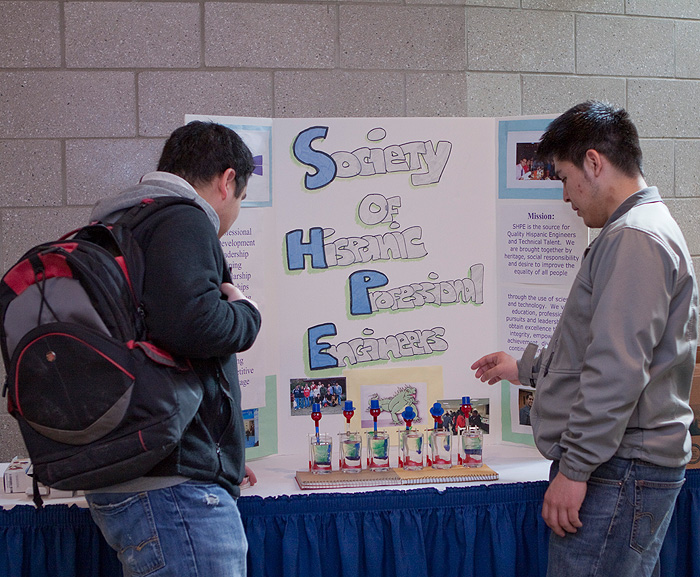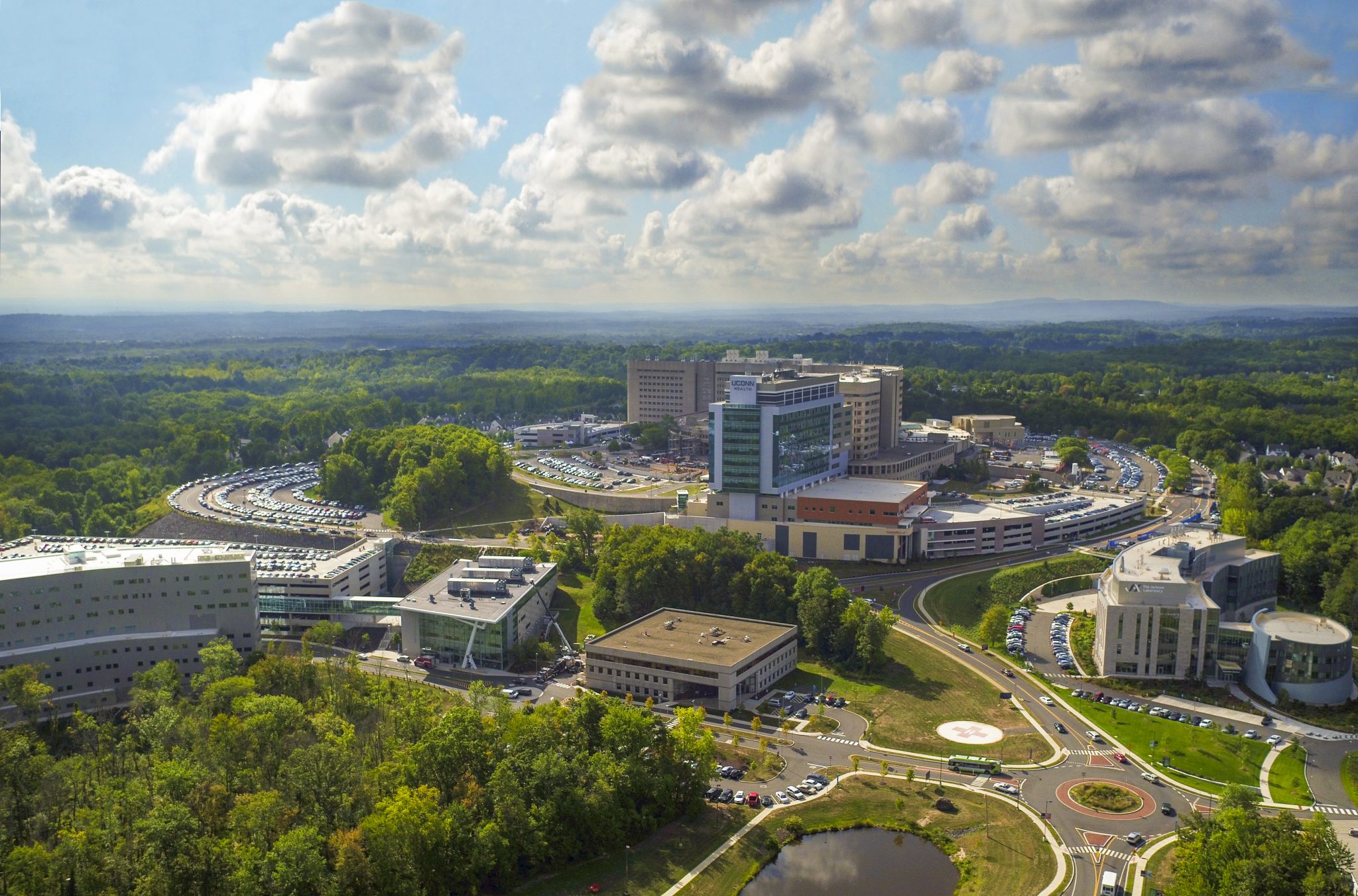The UConn chapter of the Society of Hispanic Professional Engineers (SHPE) was named one of three finalists vying for the opportunity to host a NASA-sponsored Space Science Day (NSSD). As a finalist, the chapter is sending two members, junior Chemical Engineering major Leonela Villegas and freshman William Pratt, to attend a special training program at the NASA Johnson Space Center in Houston, TX December 19-22.
Engineering major Leonela Villegas and freshman William Pratt, to attend a special training program at the NASA Johnson Space Center in Houston, TX December 19-22.
If the chapter is chosen to host a fall 2011 NSSD, NASA would assist the chapter in preparing a “fun-filled day for 500-700 middle school students, with various activities, a planetarium, and workshops for the student, teachers, and professors,” according to Leonela.
In January, she and sophomore Robert Domin will travel to the University of Texas-Brownsville, where they will assist staff and volunteers hosting an NSSD, thereby gaining first-hand experience in planning, managing and hosting such an event.
The UConn SHPE chapter prepared and submitted a proposal to the Johnson Space Center in November 2010 for the privilege of hosting 500-700 middle school students in the fall 2011. The impetus, explained Leonela, was that “The NASA Space Science Day (NSSD) event encompasses what our chapter’s mission entails, which is to promote the development of underrepresented students in the science, engineering, and other technical fields. This is a great opportunity since we already have experience advocating the importance of getting students interested early on about the STEM (science, technology, engineering and mathematics) fields.”
She noted that the SHPE-UConn members teamed up with the UConn chapter of the Connecticut Education Association to host a “Family Science Night” in October at Windham Middle School. The event attracted nearly 200 middle school students and 100 parents.
Leonela remarked that the NSSD program provides underrepresented K-12 students and their communities the opportunity to experience interactive space science content reflective of national science standards through a unique collaboration of community and nontraditional partners that include both social and professional organizations. The aim, she noted, is to inspire diverse students to pursue careers in STEM areas.



